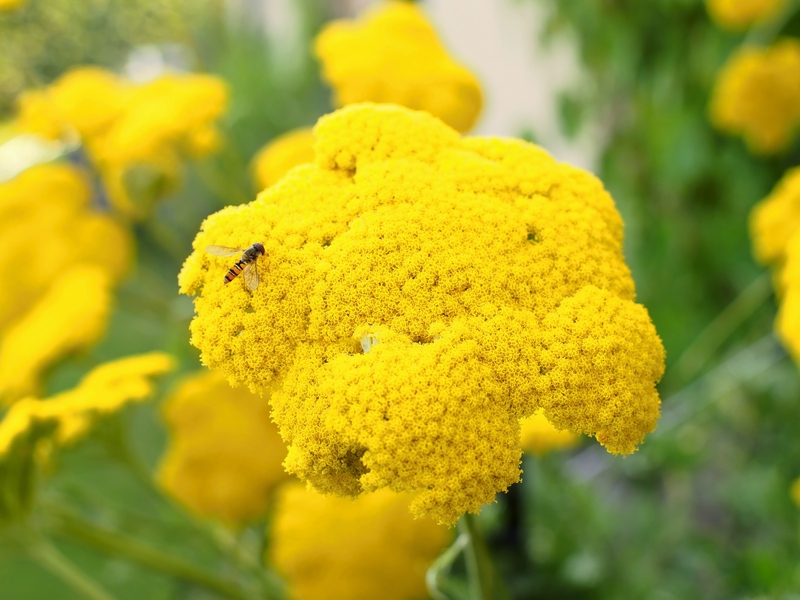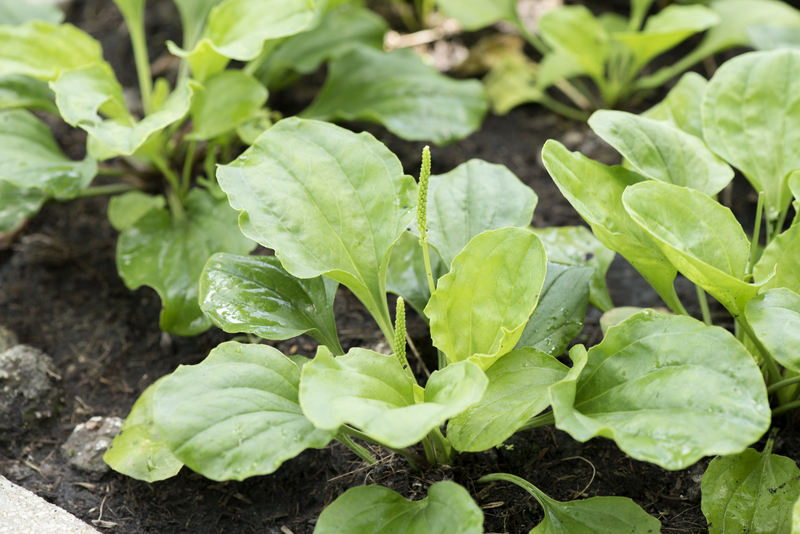Strategies for Growing Healthy Fruits and Vegetables
Posted on 18/09/2024

Few things are as satisfying as nurturing a garden and enjoying the fruits (and vegetables) of your labor. Growing healthy fruit and veggies can be a challenge, but with the right strategies in place, it's entirely possible to see success come harvest time. Here are some tips for producing fruits and vegetables that will make you proud.
Start With Quality Soil
Whether you're gardening in raised beds or containers, the foundation of your garden is good quality soil. A mix of equal parts compost, peat moss, and existing soil should provide the perfect base for your plants. It's also wise to add water retention agent to the soil like perlite or vermiculite. This will help reduce the need for frequent watering while giving plants an abundant source of moisture when they need it. Additionally, amend the soil with slow-release organic fertilizer every spring or periodically throughout the growing season for optimal plant nutrition.
Choose Varieties Carefully
Not all varieties of fruits and veggies do equally well in all climates and conditions, so take your time researching those that give you the highest chance of success. For instance, if you live in a cooler climate, opt for cold-hardy varieties that won't suffer at lower temperatures. Additionally, pay attention to disease-resistance--particularly if you live in an area that is prone to fungal infections--and days to maturity if time is a factor in deciding what to plant.
Provide Necessary Support Systems
Many fruiting plants require support systems such as stakes, cages, or trellises for successful growth. Make sure to properly install these structures early on so that you don't have to do so while attempting not to disturb delicate root systems later on in the season. Additionally, with vegetable crops such as bush beans and cucumbers, provide support like netting or fencing for their vines so they don't flop over and crush other plants nearby.Supporting your plants like this also allows them easier access to sunlight which facilitates better growth and yield potentials.
Adopt Appropriate Planting Strategies
When it comes to planting your crops properly, spacing plays a major role in ensuring each plant receives adequate amounts of nutrients and light from neighboring ones. Don't be afraid to thin out seedlings so there's enough room between each one; overcrowding can result in stunted growth or even complete crop loss due to diseases related to overcrowding such as powdery mildew or blight. And remember that vegetables like peppers benefit greatly from pinching off extra branches or flowers; this helps prioritize the energy going into fruit production instead of foliage growth overall resulting in bigger harvests..
Maintain Plants Regularly
Regular garden maintenance is key if you want healthy fruit-bearing plants throughout the growing season. Remove weeds regularly as they compete with your crops for resources; use mulch around plants as this will keep moisture levels more consistent while suppressing weed growth; pick off infected leaves or spot treat with fungicides; and monitor pests carefully since they can destroy entire crops within a few days if left unchecked eventually leading to crop loss altogether. A little effort goes a long way when it comes to keeping your garden free of diseases and pests!
Incorporate Appropriate Irrigation Strategies
Proper irrigation is essential for successful fruiting and veggie gardening seasons as too little water will cause wilting or death amongst plants whereas too much can lead to drowning root systems and diseases like mold or fungus formation. To maximize success, water deeply two times per week during drier periods making sure not to overdo it since this could cause nutrient leaching among other problems; additionally establish drip irrigation systems along popular watering lines if needed especially with larger gardens to avoid overwatering certain areas while dry spots still exist elsewhere. An accurate monitoring system placed near each row can help alert you quickly when something isn't quite right allowing timely action against potential issues before they become serious problems!
Harvest Time Properly
The final step in successful fruiting or vegetable gardening is knowing when exactly it's time to harvest; there is no one-size-fits-all approach here but generally doing so slightly before peak ripeness ensures slightly tastier results than waiting until everything is fully ripe because sugars contained in produce start declining shortly after reaching their peak making them taste less sweet overall upon harvesting later on down the line! Keep an eye out as well for signs of disease among plants since most fungal issues will render food inedible thereby wasting much of your hard work up until then so regular inspections beforehand could save many headaches down the road later on throughout the season.
By implementing these strategies correctly prior planting season ever starts then you stand a much better chance of producing healthier more nutrient rich fruits along with tastier crops overall with higher yields per plant plus lower likelihoods towards issues related disease spread or pest invasions! Ultimately better planning ahead usually leads towards improved results later down which why having these important tips on hand benefits everyone looking increase their knowledge base upon growing healthier fruits/veggies year after year!




